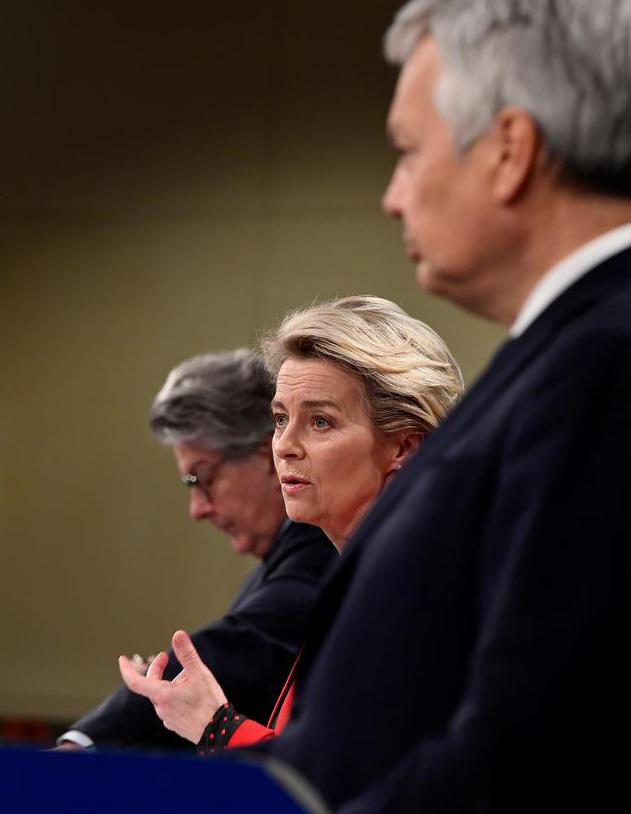
3 minute read
EU is late on Covid-19 vaccine distribution – European Commission

CorporateDispatchPro
EU is late on Covid-19 vaccine distribution – European Commission
The European Parliament discussed the Covid-19 vaccine in the presence of European Commission President Ursula von der Leyen last month. During the debate, the European Commission President admitted that the EU is running late in its distribution of the Covid-19 vaccine. She also said it was too optimistic that the vaccines would arrive in time.
European Parliament Vice-President Roberta Metsola said the Covid-19 vaccine should not lead to European Member states to turn against each other. “This is not about one Member State vs another. Turning it into that would be a political miscalculation,” she said.
“It has always been up to member state governments to decide how to share the vaccines allocated and everyone should be transparent about that”, she added. “The bigger point here is that coordination works. Joint EU Action works. States like Malta have vaccines available because we insisted on EU joint procurement – because we knew that we had to face this together,” she said.
Metsola said this after the European Commission clarified that there will be a flexible systeme for vaccine distribution.
On Friday, Austrian Chancellor Sebastian Kurz said that vaccine doses were not being spread evenly among member states despite an agreement within the bloc to do so according to population. He blamed, without offering evidence, separate deals struck between the EU’s vaccination steering board and drug companies.




CorporateDispatchPro
The letter from Kurz and his counterparts, addressed to the Commission President Ursula von der Leyen and European Council President Charles Michel, called for “a European solution”.
The Commission responded that doses have been distributed in proportion with the population of each country and taking into account epidemiological data, adding that was up to member state governments to decide how to share them.
A flexible policy agreed by EU governments meant countries facing a more acute phase of the epidemic could access more doses, if some governments opted for not taking up their pro rata allocation, the EU executive said in a statement.
This means that Malta, which is facing a rise in Covid-19 cases, has a greater chance of getting more vaccines.
MEP Cyrus Engerer spoke during the debate with the European Commission. He said that if Member States had taken part in the vaccines individually it would have been a feast for pharmaceutical companies. Therefore, he insisted on the importance of solidarity, sot hat the European people can feel like they have someone who represents them in this forum.
He also said that we should plan for a third vaccine if necessary.
This article is part of a content series called Ewropej. This is a multi-newsroom initiative part-funded by the European Parliament to bring the work of the EP closer to the citizens of Malta and keep them informed about matters that affect their daily lives. This article reflects only the author’s view. The European Parliament is not responsible for any use that may be made of the information it contains.







